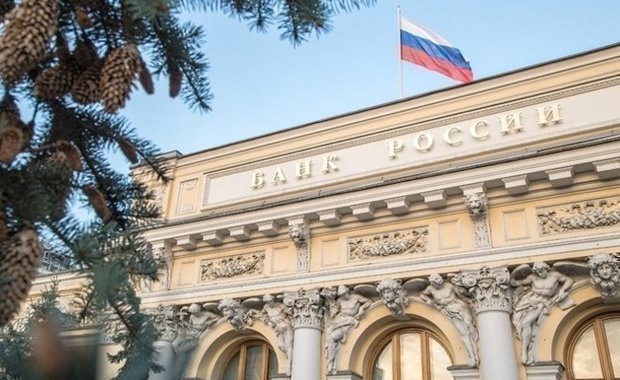''The concept of payroll card programme is disappearing'': private banks offer state players to share customer data
Liberation from ''wage slavery'' is going to require large investments
Representatives of Alfa-Bank, Tinkoff Bank and Sovcombank have developed the draft project of Consolidated salary register to reduce the oligopoly of banks with state participation in this market. In addition, the introduction of the register would finally help workers to get rid of ''wage slavery'', in which they cannot choose the bank to receive payment for work. Read the details in the material of Realnoe Vremya.
Domination of banks with state participation in the market of payroll programme
The norm by which Russians can change their ''salary'' bank has been valid for more than four years, but in fact it does not work, said deputy chairman of Alfa-Bank Vladimir Senin at the parliamentary hearings in the State Duma on Monday. The employee receives a salary in the credit institution chosen by the employer, and when the employee tries to change the situation, he or she may face resistance of accounting department.
The claim of Senin and his colleagues from Tinkoff Bank and Sovcombank was that state banks accumulate large amounts of data about customers, for example, their financial situation, as a result of ''wage slavery''. Using this information, banks with state participation know about the risks better and can decide whom and under what terms to issue loans or other products. Other credit institutions do not have the possibility to analyze salary flows and, accordingly, to assess possible risks. The conditions for market participants turn out to be unequal.
The bankers proposed to solve this problem by creating the Consolidated Salary Register (KZR). As Senin explained to Realnoe Vremya, the project has already been prepared, ''We believe that its implementation will significantly reduce the monopoly of Sberbank and the dominance of state banks. In fact, the concept of payroll card project will disappear after the implementation of KZR. The banks wishing to receive employee's funds communicate directly with him directly, not through the employer.'' The details of the project will be discussed with the Central Bank in the near future, the representative of Tinkoff Bank told Vedomosti.

Today, one needs to file an application to change the bank. The introduction of the registry would relieve the worker of this necessity, deputy chairman of Sovcombank Aleksey Panferov stated.
According to Rosstat, in 2017 there were about 72 million working citizens in Russia. About 14,5 million people out of them worked in public institutions, 1,5 million were employed in the civil service. According to Alfa-Bank, the majority of working citizens are get paid via direct deposit (80%), 60% of them — in Sberbank. Another 15% of payees are in the united VTB, 7% — in Gazprombank. Thus, 82% of the market is occupied by the three largest banks with state participation, which makes it extremely low-competitive. According to the representative of Alfa-Bank, the impact of ''wage slavery'' in this credit institution is still felt.
How KZR is going to operate
The salary register will include credit organizations that offer salary projects, and organizations to which the consumer has applied to make his or her account salary one. The register will be a collection of information about employers, employees and the amount of wages to be credited on the account of the employee, says Senin. Therefore, it will be convenient to use both the Central Bank and credit institutions to assess the level of income of Russians, including in the calculation of debt burden, he said.
 When developing the project, banks relied on the foreign analogue — the British payment system BACS (The Bankers Automated Clearing Services). ''With its help, employers transfer salaries to current accounts in any bank in the UK, and, as far as we know from public sources, currently its services are used by more than 90% of working British workers,'' says Vladimir Senin.
When developing the project, banks relied on the foreign analogue — the British payment system BACS (The Bankers Automated Clearing Services). ''With its help, employers transfer salaries to current accounts in any bank in the UK, and, as far as we know from public sources, currently its services are used by more than 90% of working British workers,'' says Vladimir Senin.
However, the press service of Ak Bars Bank highlights the difference in the approaches of the Russian project and the British system. ''In the UK, the information on debit and credit transactions is accumulated in the payment system, and the account shows only balance. Conditionally, if you come to a store without a card, you can ask the seller to credit the purchase to your account. This information will be stored in the system, and after a salary is deposited on the account, you will immediately see the balance — the difference between expenses and income.'' Thus in Russia through the register they suggest to distribute only payroll therefore it is unclear how the KZR is going to differ from that now part 3 Art. 136 of the Labor code of the Russian Federation regulates — it is when the salary is paid in the place of work performance or is transferred to the credit institution specified in the statement of the worker.
According to Vladimir Senin, the KZR can function as follows:
- The employee draws up the will through the bank that issued his card. The will specifies the data of the employer (personal tax reference number + name).
- The bank transfers the data to the KZR.
- The employer uploads employee data (name and personal data) to the personal account of his or her bank, in which the current account or only salary project are opened, as it does now.
- The bank transfers the total amount and the register to the KZR.
- KZR either distributes funds to banks or uses the services of the National payment card system (NSPK) or the quick payment system.
- If the registry is missing some employees, but technically it could transfer to not all employees, the registry needs to be partially performed. The amounts that failed to be transferred must be returned to the bank with the status of deposits for all registry employees.
- At any time, the employer must have the possibility to download the register of payments for a particular employee. Such requests can be made through the personal account of his bank. The bank turns to the KZR and receives the information about amount and payment dates for a particular employee. Not all payments are shown, but only from a specific employer. The personal account of banks should have a service that would notify the employer about it. But it is desirable not to show the details, but simply a notification in order to meet the Labour code.
- The access to the database of payments of the KZR can be provided default to the ministry of labour of the Russian Federation.
''It's not just a card, it's an entire ecosystem''
The payment of salaries will fall on the shoulders of a single settlement centre — as an option for such centre bankers call the Moscow Exchange or NSPK. According to Senin, the main significance of the new model is that any individual will get a convenient way to choose a salary bank without the participation of the employer — ''and this will is guaranteed to be executed by the KZR''.
As the representative of the Moscow Exchange told Realnoe Vremya, it is capable of technologically implementing this task: ''We already have a lot of developments within the framework of the marketplace project: with the help of remote identification technologies, we will be able to open and maintain accounts for every working Russian.'' As for the NSPK, here the creation of a unified settlement centre is considered more broadly: ''Not only for depositing of wages, but also for automatic processing of all payments — for example, service fees, mortgage and other,'' said the press service. At the same time, the NSPK intends to be included in the project only if ''it will be a full-fledged settlement platform of the state scale at the level of the Bank of Russia''.
 Professor at the Department of Finance and Banking at Ranepa Yury Yudenkov agrees that now the market is monopolized, and the creation of a settlement centre is a good idea: ''If such a centre appears, no one will say that everything was given into the hands of state banks. The question is who will serve it — it's a big cost. All projects related to salaries, payments for housing services and the like, require large investments.'' The implementation of the project in the digital age can be quick enough, Yudenkov believes, it's a matter of money. Another expenditure item — the expenditure on information security. ''Who will ensure the safety of data in the new structure and who will pay for it? In principle, it's like the idea to create a bank that will deal only with salaries. Who will find the authorized capital and money to create such a bank? I think in the near future it is hardly possible,'' the expert says.
Professor at the Department of Finance and Banking at Ranepa Yury Yudenkov agrees that now the market is monopolized, and the creation of a settlement centre is a good idea: ''If such a centre appears, no one will say that everything was given into the hands of state banks. The question is who will serve it — it's a big cost. All projects related to salaries, payments for housing services and the like, require large investments.'' The implementation of the project in the digital age can be quick enough, Yudenkov believes, it's a matter of money. Another expenditure item — the expenditure on information security. ''Who will ensure the safety of data in the new structure and who will pay for it? In principle, it's like the idea to create a bank that will deal only with salaries. Who will find the authorized capital and money to create such a bank? I think in the near future it is hardly possible,'' the expert says.
''There are a number of issues in the process of creating a single registry. In order to make the project working, it is necessary to connect all banks, including federal ones. But will the project be interesting for them? Plus, it is unclear where the employer will get information if there is a problem with money transfers,'' the representative of the press service of Ak Bars Bank doubts. The emergence of the register is unlikely to significantly affect the distribution of existing salary projects, he adds: ''One of the reasons — in behavioural psychology, people are already accustomed to their salary product. This is not just a card, but a whole ecosystem in which the client can have a loan, deposit, and remote banking, bonuses are accumulated, auto payments are connected. Therefore, the transition to another bank should be complex in this case.''